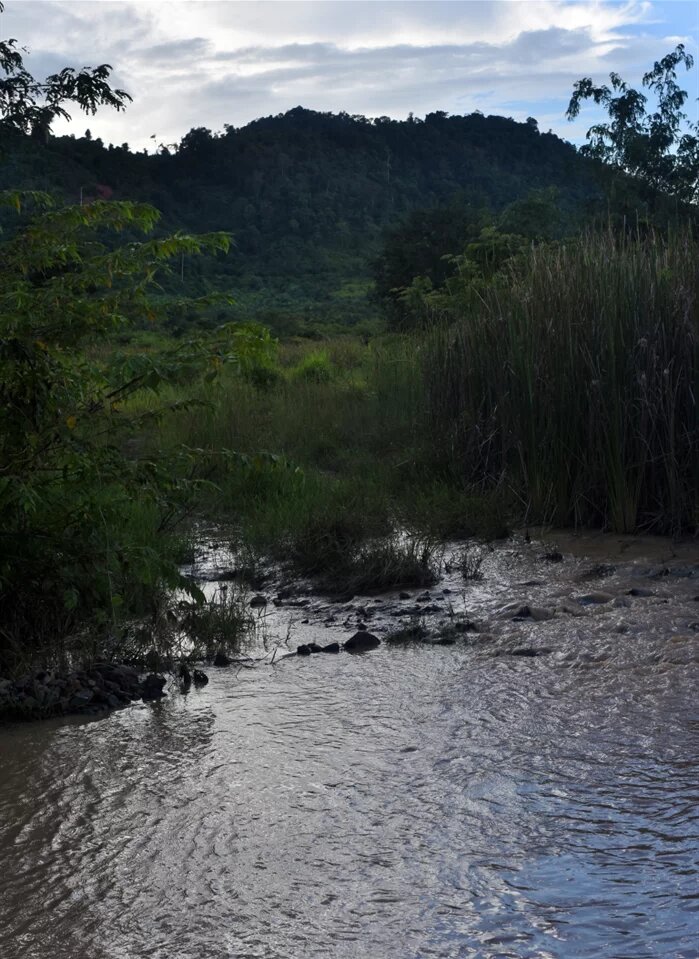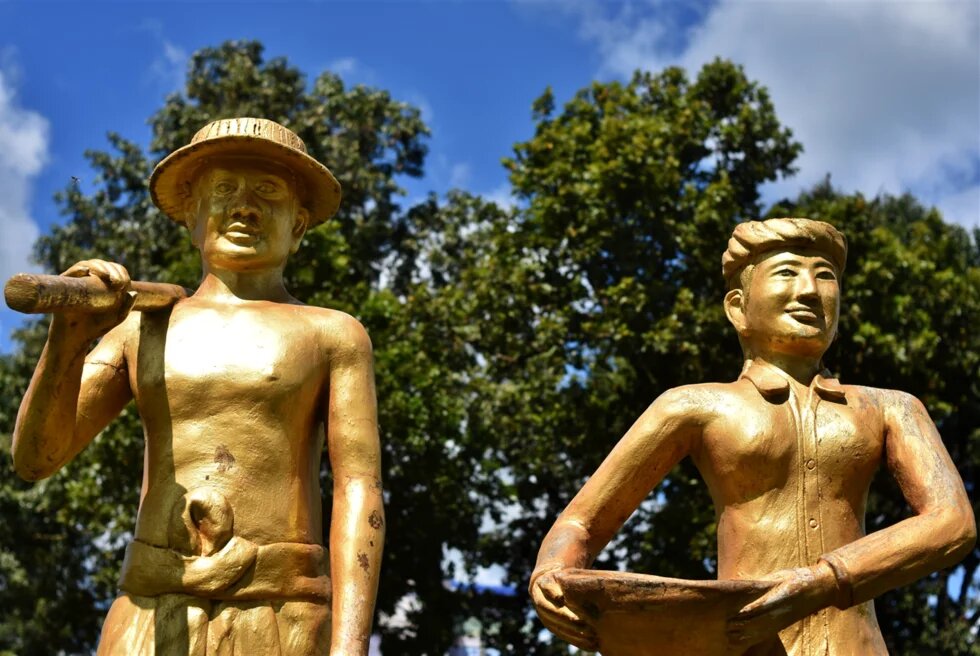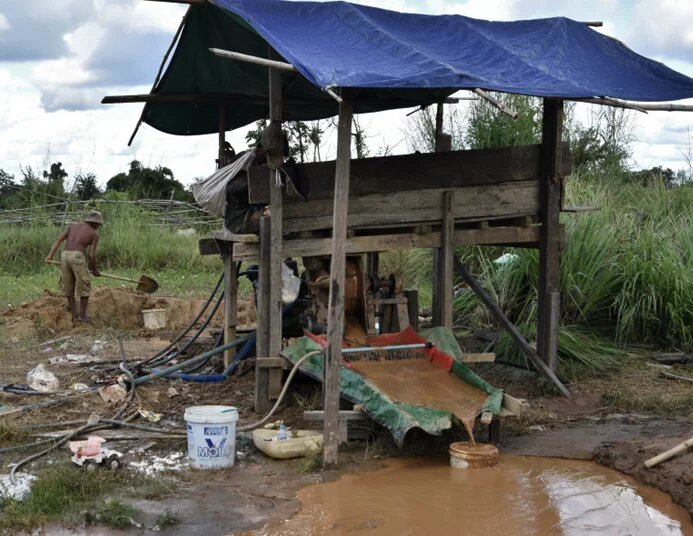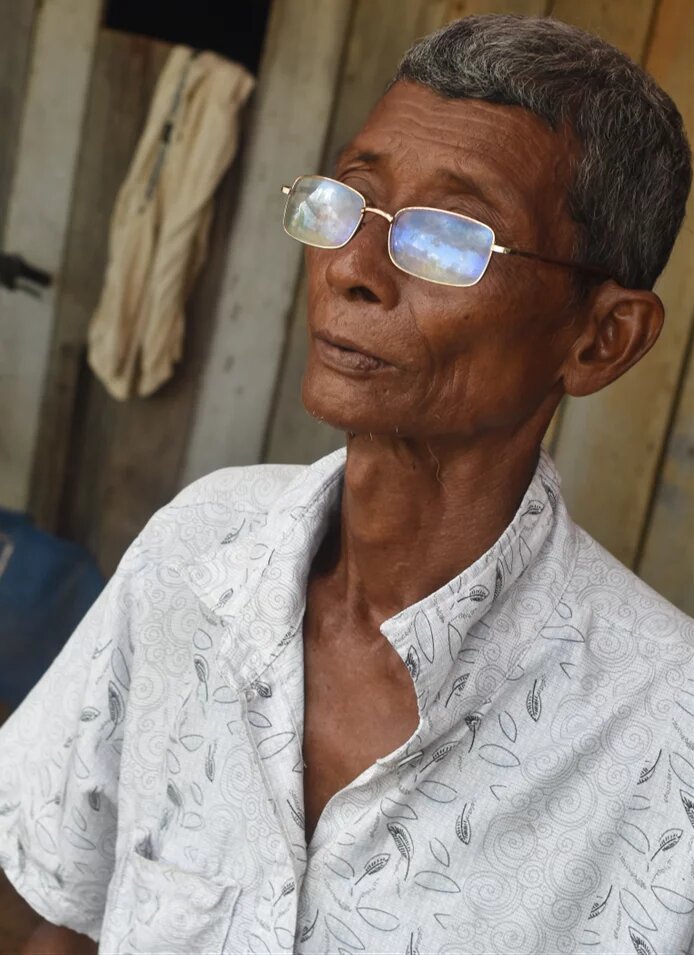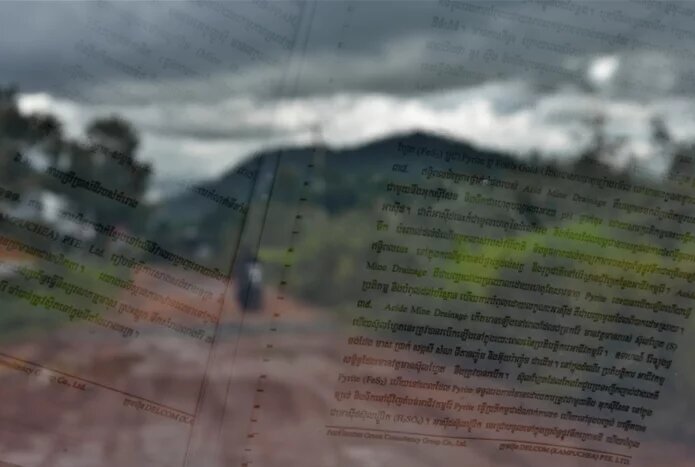
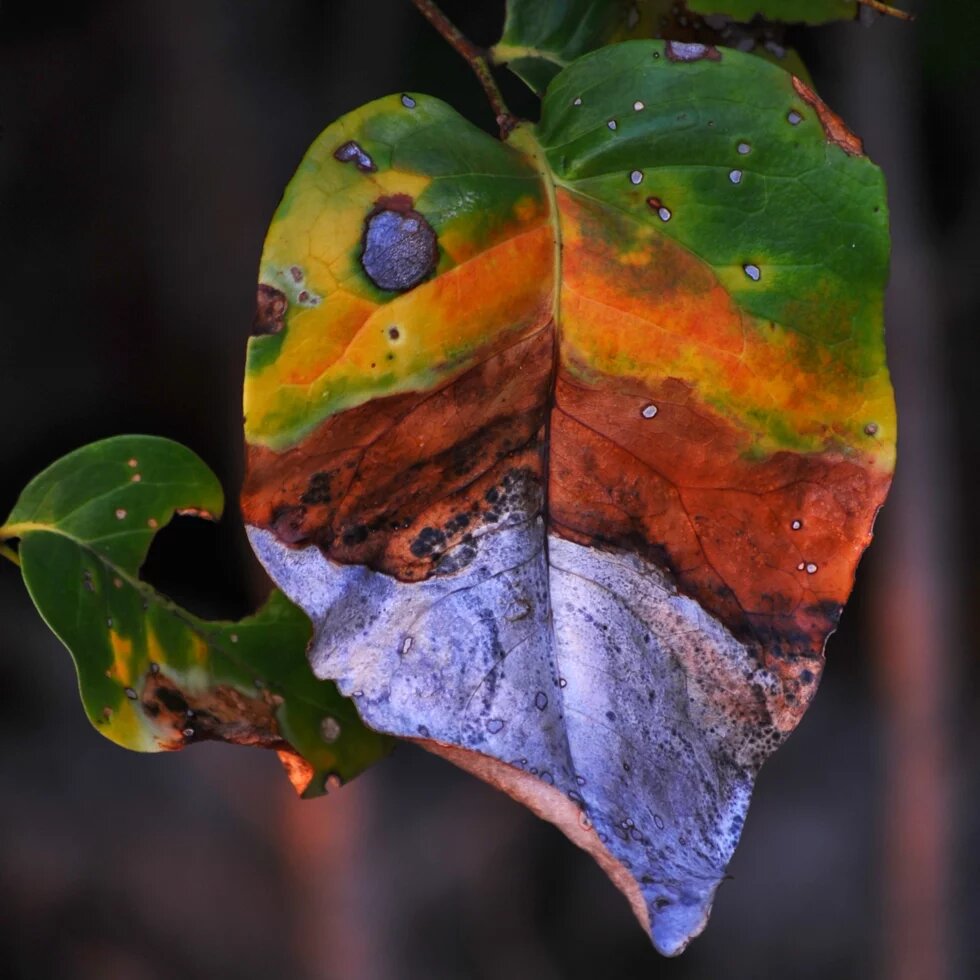
Phnom Luong lies in the center of a community of Indigenous majority villages in Preah Vihear province. Kuy people in these villages have had a symbiotic relationship with the mountain and forest surrounding it, using it for agriculture and forestry products.
However, this was until Delcom Kampuchea, a joint venture between Cambodian and Chinese investors, entered the area to mine gold. The mining company was given a concession that included the mountain and surrounding land, sandwiching the communities living there between another economic land concession to the west.
Tuy Cheng, a community representative, says the company severely impacted village residents, affecting their land rights and access to traditional lands in the area.
“A lot of land was occupied by the [company],” says Cheng. “Our livelihood changed a lot, they don't allow us to go to the mountain to mine for gold as we used to do traditionally.”
The dirt road to Delcom Kampuchea is also littered with artisanal gold mining operations, the drone of generators hangs in the air as muddy waters laced with gold are filtered over large sieves.
But it is Delcom Kampuchea’s operations that have primarily affected the quality of water available to Kuy villagers.
"The company says they have a filtration system but when the local authorities go to check they are not experts so they don’t know if it’s working or not. And the authorities are not free to go in, so information is not disclosed by the company,” says Hin Bunnath, executive director of the Organization for Promotion of Kuy Culture (OPKC).
The non-governmental organization advocates preserving the livelihood and cultures of Indigenous communities, especially the Kuy people. Many indigenous communities are affected by land concessions given to private companies for agricultural or extractive operations.
A critical resource for advocacy groups like OPKC is the database of environmental impact assessments and project information curated by Open Development Cambodia (ODC).
The NGO works to collate project reports and documents, which are often very hard to access for communities. The easy-to-use and accessible database is available to the public and advocacy groups.
These documents not only help communities advocate for their rights but also give them critical information about the company’s plans for the area and enable them to better negotiate with company representatives and the government for compensation packages.
“The project profiles page on public revenues from extractive industries is very significant because it allows us to access information on the overview, activities, and operation of the extractive industry project in Cambodia to monitor their compliance with the regulations,” adds Bunnath.
Indigenous people are kept away from discussions and decision-making that affects their communities and livelihoods, making it imperative for projects like ODC’s extractive industries page to fill the information gap and enable them to better advocate for their rights.
This article is an excerpt from "Profiles of Courage." Click here for the full reading.
